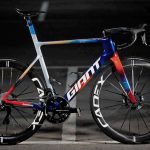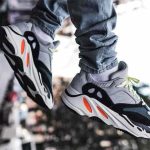More than half (55%) of Americans reduced their spending on apparel and footwear in the last 12 months, while 36% have switched to less expensive brands, according to the latest annual survey of 2,000 consumers by global management consulting firm, Booz & Company.
That made apparel and footwear the second biggest target of cost savings after consumer electronics, where 65% of respondents said they had reduced spending over the 12 months preceding August. By comparison only about a quarter to 30% reduced spending on nonalcoholic beverages, health and beauty, household products and food at home.
In regard to trading down, apparel and footwear fared somewhat better. While 36% of respondents said they had switched to less expensive apparel and footwear brands in the last 12 months, only 11% expected to do so in 2011. That compared to 39%/12% for health and beauty and 41%/10% for household products. Six in ten respondents said they had not switched apparel and footwear brands in the last year and 71% said they did not expect to next year. That compared to 64%/79% for nonalcoholic beverages, 57%/77% for household products and 57%/74% for food at home.
The third annual Booz & Company consumer spending report reveals that U.S. consumers continue to feel they are on shaky ground fueled by high unemployment and feelings of uncertainty, even among those who are employed. As a result, consumers are economizing broadly, deferring spending on discretionary items, and trading down on essentials. In fact, most consumers cut back spending even more this year than last.
Trading Down on Essentials Continue
According to the survey, cutbacks on both discretionary spending and essentials this year were again significant, and even greater than the previous year:
- On consumer electronics, 56% cut back spending vs. 53% in 2009
- On health and beauty, 28% cut back spending vs. 25% in 2009
- On household products, 28% reduced spending vs. 21% in 2009
- On food at home, 28% cut back on expenditures vs. 23% in 2009
A Big Boost for Online Retailers
According to Booz & Company’s analysis of the survey results, newly frugal purchasing behaviors are most likely to persist in those categories where consumers felt that their frugal behavior was “unpunished.” For example, run ups in gas prices cause consumers to switch to lower-priced gasoline brands, but when gas prices fall they see little point in switching back as their cars continue to run reliably. This behavior is called “unpunished experimentation” and tends to stick even after economic conditions improve.
Online shopping has greatly benefited from this unpunished experimentation. As cash-strapped consumers searched for bargains during the recession, they discovered convenience and often lower prices available on the Internet. The study showed that the number of consumers who are most inclined to shop online across multiple categories doubled increasing from 16% in 2009 to 32% in the current survey. It also showed a dramatic increase rising from 11% last year to 23% this year in the percentage of consumers using the online channel to research before making a purchase offline.
Another good example of unpunished experimentation is private label items at the supermarket. Private label penetration has grown from 15% before the recession to more than 18% of total sales in 2010. When the economy rebounds, we expect private label sales will remain strong and branded consumer packaged goods may find it difficult to regain their lost market share.
In contrast, some frugal behaviors are not likely to stick as conditions improve. In discretionary categories including apparel, cosmetics, and alcoholic beverages, consumers often found that switching to cheaper brands was an undesirable trade-off and plan to switch back post-economic recovery.
Methodology
The survey polled 2,000 U.S. consumers with a sample that is representative across demographics, geographies, product categories, and retail formats. The polling was conducted online during August 2010. The results of this sample were integrated with Booz & Company’s perspectives on key trends currently shaping consumer behaviors based on recent client experiences across the marketing and media ecosystem and across a broad set of consumer spending categories.
The full report, “Forever Frugal? 2010 U.S. Consumer Survey Confirms Persistent Frugality,” is available for download on the Booz & Company website.















